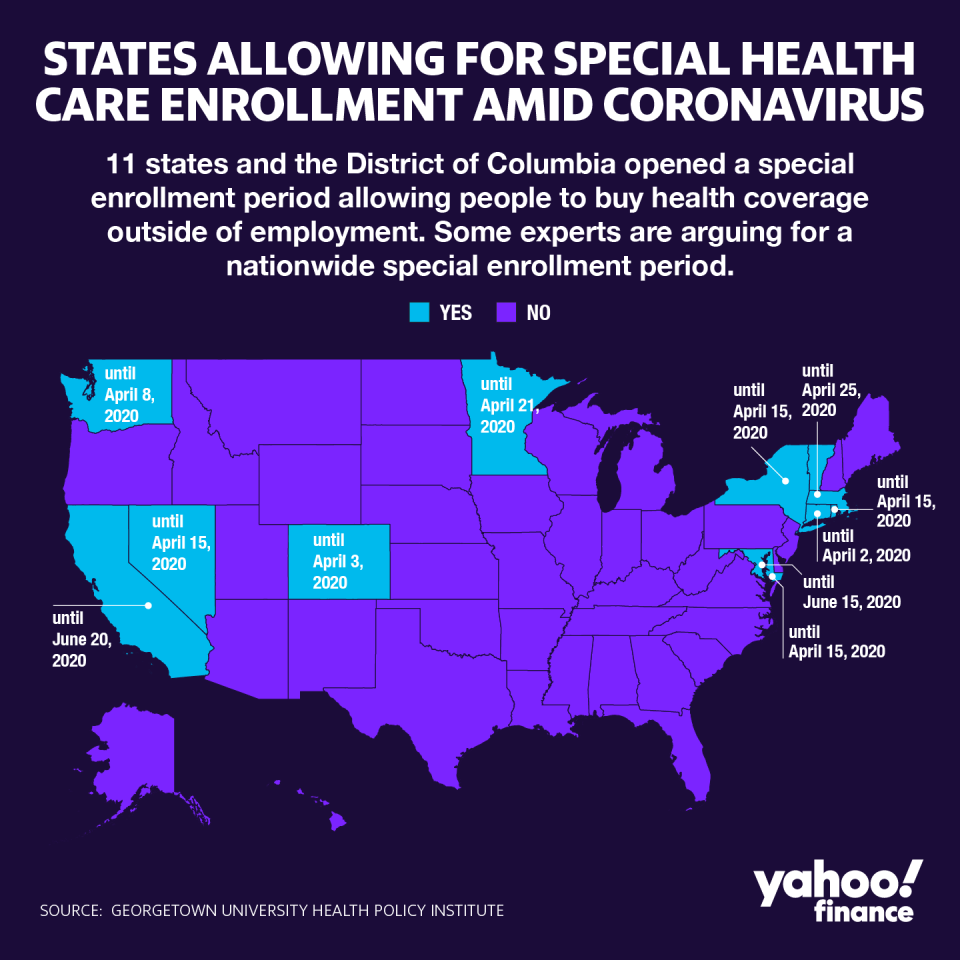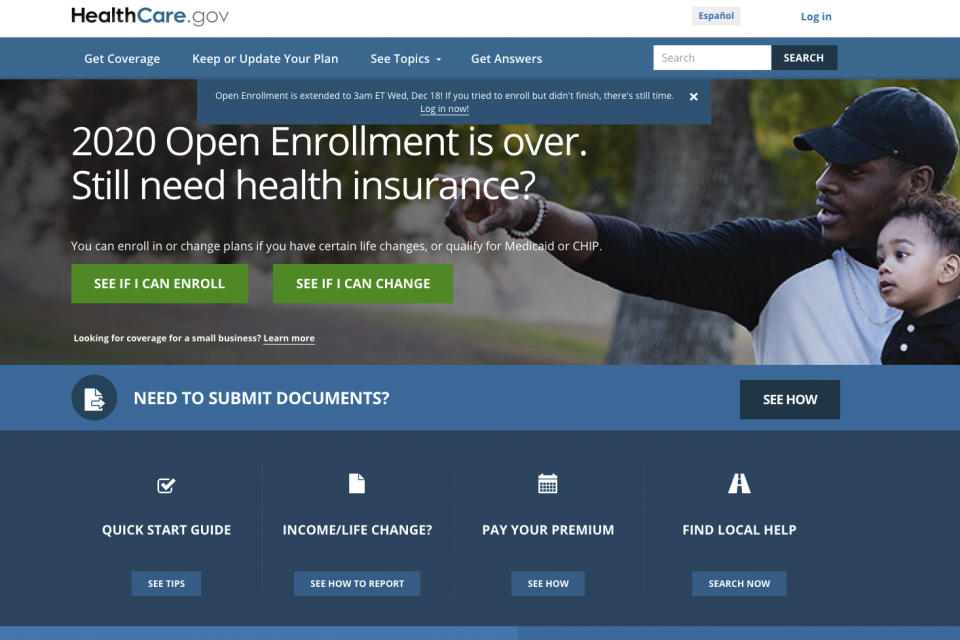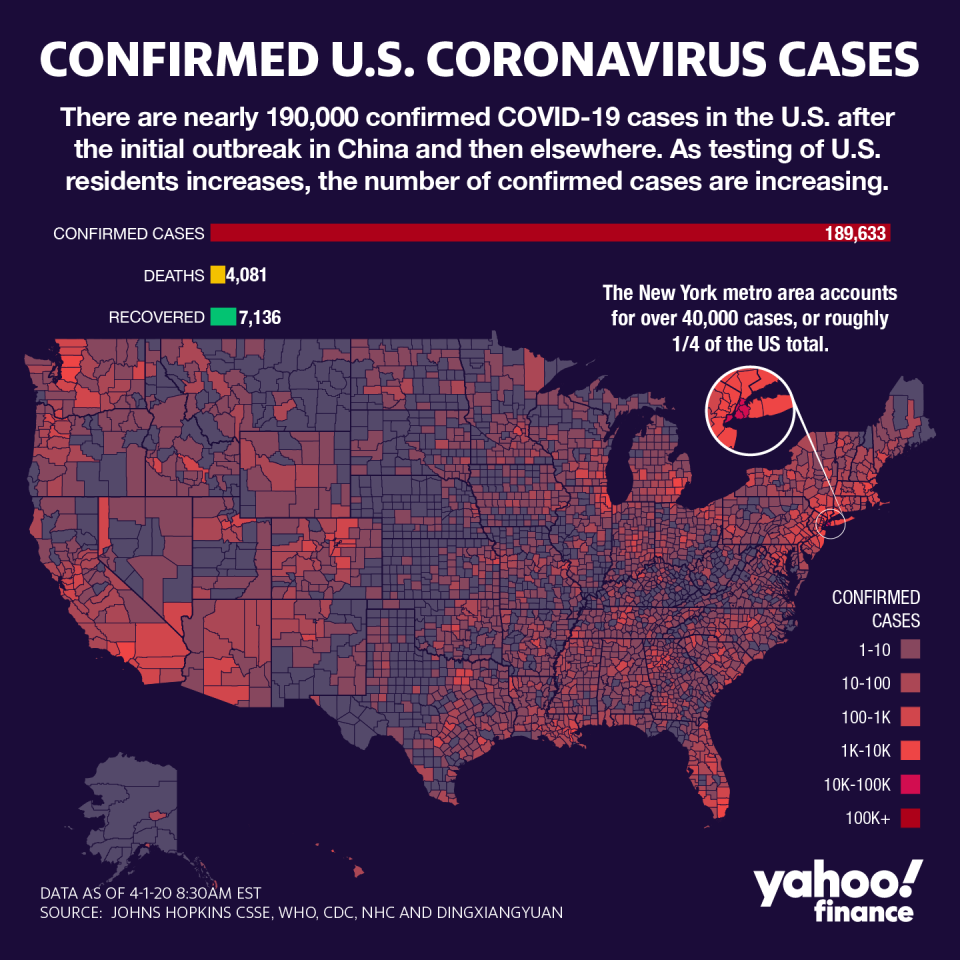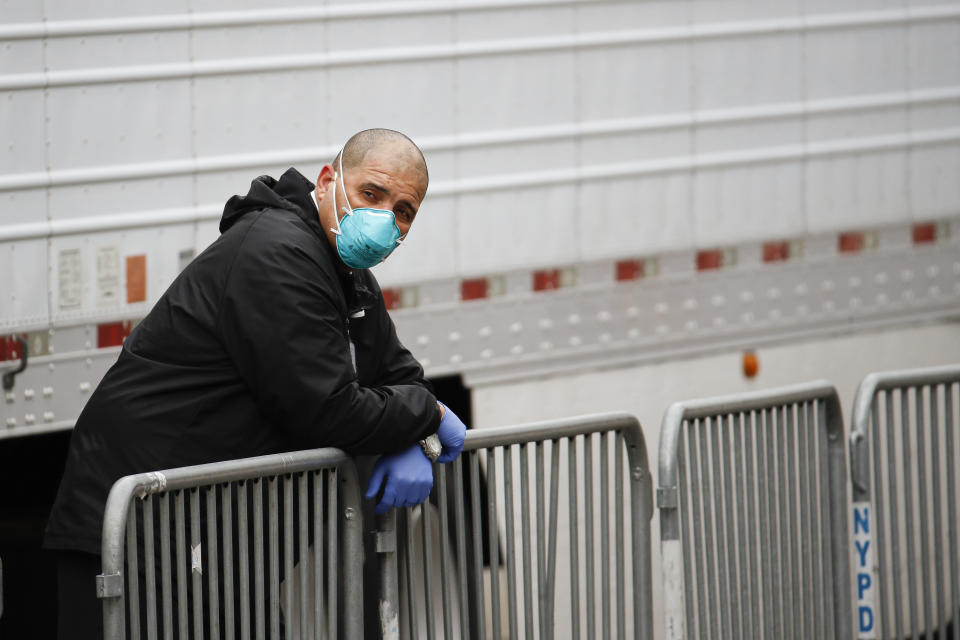Coronavirus: Trump administration decides against nationwide special health care enrollment
As the number of coronavirus cases in the U.S. keeps growing, there have been calls for the Trump administration to create a nationwide special enrollment period (SEP) for uninsured Americans to sign up for health insurance coverage.
The Trump administration considered an SEP — which would involve re-opening the HealthCare.gov enrollment site — but has now reportedly decided that the administration will not be pursuing that route.
President Trump has the authority to declare an SEP in states that have a federally-run Obamacare marketplace, which is all but 12 states — California, Colorado, Connecticut, D.C., Idaho, Maryland, Massachusetts, Minnesota, Nevada, New York, Rhode Island, Vermont, and Washington — and Washington D.C.
Currently, all areas without a federally-run Obamacare marketplace besides Idaho have created special enrollment periods on a statewide level. Many of those end during the month of April. A nationwide SEP would open enrollment to Americans in states where the federal government runs the health care marketplace.

“The federal government has done disaster-related SEPs,” Sabrina Corlette, a research professor at Georgetown University, citing Hurricane Harvey leading to an SEP in the Gulf Coast area, told Yahoo Finance. “But to my knowledge, nothing like what’s being contemplated here. I will say there is an SEP opportunity.”
The Affordable Care Act (ACA) — which the Trump administration is currently trying to dismantle — allows certain people to enroll when there have been major life events, such losing your job and therefore losing insurance. The SEP usually lasts for 60 days after a “qualifying event.”
A nationwide SEP would be “almost like a new open enrollment period, like what you have towards the end of the year for the new plan that starts in January,” Linda Blumberg, an institute fellow at the Urban Institute, told Yahoo Finance. “Basically, it lets anybody enroll at this time, regardless of whether or not they had a qualifying event. Certain states have done that, but I think what [is being suggested] is there should be a nationwide special enrollment period for anybody who wants to enroll.”

28 million people uninsured
The issue is crucial for Americans who don’t have health insurance to begin with and may be interested in getting it now because of the coronavirus outbreak.
If an individual finds themself without coverage and doesn’t have a low enough income to qualify for Medicaid, then they have the SEP option if it’s available in their state.
“What we’re really talking about here is there are 28 million people in the country who are uninsured,” Corlette said. “Those folks wouldn’t qualify for an SEP unless they live in one of the states that has established one.”
Having health insurance could make a major difference when it comes to covering the cost of coronavirus testing and treatment, which can exceed $20,000. All of the major insurance companies announced they would be waiving the cost of testing while insurance providers Aetna, Cigna, and Humana are also waiving out-of-pocket costs for treatment.

‘These marketplaces are at very thin staffing levels’
A nationwide SEP would require some lift on the government side.
“If you have a lot of people doing that at the same time, you have a bunch of uninsured people coming in, it really does strain the capacity,” Corlette said. “And outside of the annual open enrollment window, these marketplaces are at very thin staffing levels. They’re not really funded to field a really big increase in calls and requests and queries. So that’s one issue.”
The other issue with SEPs, according to Corlette, is that insurance companies would be asked to take on a large amount of new enrollees, and pay more medical claims.
“There’s been different actuarial projections about how much capacity insurance companies have to absorb these additional costs, and some projections are pretty dire,” she said. “Ultimately, those costs would get passed on to consumers and employers through higher premiums. But that can take a little while to percolate through the system. So there could be insurance companies that have to dip into their reserves to cover claims this year.”

As for those who are uninsured and living in states where an SEP isn’t available, there are key points to remember.
“If you show up in an emergency room, the hospitals do have to treat you,” Corlette said. “They can’t turn you away. But you will financially be on the hook for those costs. There was money in this recently passed stimulus bill to help compensate hospitals for taking care of those uninsured patients. I don’t know if it’s going to be enough, but that will help some.”
Adriana is a reporter and editor for Yahoo Finance. She can be reached at [email protected]. Follow her on Twitter @adrianambells.
READ MORE:
Coronavirus hospital bills: A look at the costs for Americans
'A recipe for stress': Psychologist details toll of working from home amid coronavirus
Coronavirus: U.S. health care workers 'taking it one minute at a time' as deaths rise
Read the latest financial and business news from Yahoo Finance
Follow Yahoo Finance on Twitter, Facebook, Instagram, Flipboard, SmartNews, LinkedIn, YouTube, and reddit.
